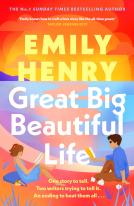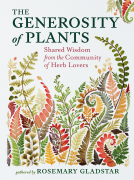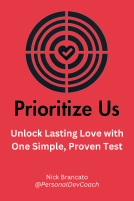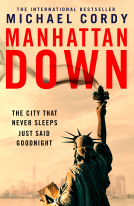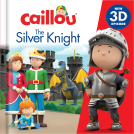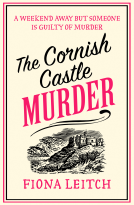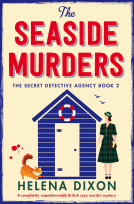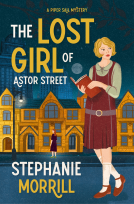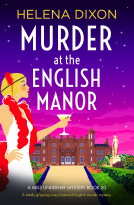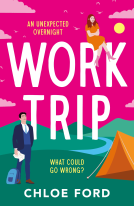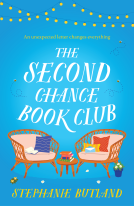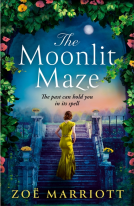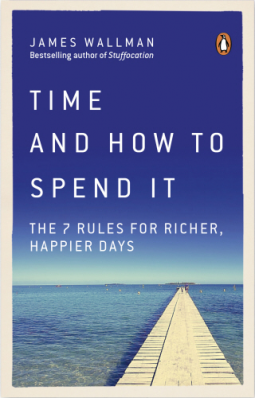
Time and How to Spend It
The 7 Rules for Richer, Happier Days
by James Wallman
This title was previously available on NetGalley and is now archived.
Send NetGalley books directly to your Kindle or Kindle app
1
To read on a Kindle or Kindle app, please add kindle@netgalley.com as an approved email address to receive files in your Amazon account. Click here for step-by-step instructions.
2
Also find your Kindle email address within your Amazon account, and enter it here.
Pub Date 4 Apr 2019 | Archive Date 31 May 2019
Talking about this book? Use #TimeAndHowToSpendIt #NetGalley. More hashtag tips!
Description
A Financial Times Book of the Year
'Genius ... I couldn't put it down, I read it from cover to cover'
CHRIS EVANS
If the most precious thing we have is time, the most highly prized expertise should be knowing how to spend it well. Yet, busier than ever, do we really understand which experiences bring us joy and success, and which don’t?
After all, we’ve learned how to spot the difference between junk foods and superfoods. When you discover the equivalent rules for time, it’ll change how you live your life.
In his first book since the era-defining Stuffocation, cultural commentator and bestselling author James Wallman investigates the persistent problem of wasted, unfulfilling time, and finds a powerful answer — a revolutionary approach to life based on the latest scientific discoveries. At its heart is the inspiring revelation that, when you play by the new rules, you can actively choose better experiences.
Bursting with original stories, fresh takes on tales you thought you knew, and insights from psychology, economics, and culture, Time and How to Spend It reveals a seven-point checklist that’ll help you avoid empty experiences, and fill your free hours with exciting and enriching ones instead.
This life-enhancing book will show you how to be the hero or heroine of your own story. You’ll learn how to avoid WMDs (weapons of mass distraction), and discover the roads that lead to flow. You’ll get more out of every minute and every day; your weekends will fizz and your holidays will be deeply nourishing. You’ll not only be living the good life, but building a truly great life.
Available Editions
| EDITION | Other Format |
| ISBN | 9780753552650 |
| PRICE | £9.99 (GBP) |
| PAGES | 320 |
Featured Reviews
 Carole G, Reviewer
Carole G, Reviewer
This is the sort of book I love to have in a hard copy, I do think these are better to have to highlight passages with stickers and it’s easy to look back on.
However I’m very grateful to netgalley for sending me the ARC and while I haven’t read it all, it’s something to keep for future reference and to refer back to.
 jc C, Educator
jc C, Educator
If you value your time and what to get more out of life this book is definitely worth a read. Even if you don't take all the authors advice or agree with what he is saying, it is thought provoking, and will encourage you to look at your life and how you are spending it. I particularly enjoyed the chapter based on Story, and the references to Joseph Campbell's 'The Hero's Journey', from then on I was hooked on the book. I found it very interesting and enjoyed all the stories and anecdotes. Best of all the book is different it isn't just another self help book, it reaches different corners and definitely leaves you contemplating your own time and what you are going to do with it. Thank You
Most things you can replace, but one of the things which you simply can't replace is time. Even though we know this, we fail to use what we have wisely. We have more leisure time, but that's not how it feels: a high value is put on how we spend our working hours, but there's a low value on leisure. Unfortunately we now know how to work and not how to live: we need to learn how to spend our leisure time wisely and James Wallman has taken on the onerous task of teaching us how to do this.
Historically people have looked to acquire material possessions as they can progress through life. I can understand this : they're tangible and if bought carefully will stand the test of time whereas experiences leave you with (as my father would have said) 'nowt to show for it'. It seems almost counter intuitive to say that rather than looking to accumulate material possessions we should looking to acquire experiences if we want to have a successful life. Wallman explores the relationship between experience, resilience and success as well as experience, happiness and success. Societies are now more interested in well being than wealth so the pursuit of experiences makes sense.
But will just any experience do? No - they have to be selected carefully and wallman gives us an acronym, a seven-point checklist, to use when we select our experiences. It's STORIES. Experiences need to create a story, be transformative, outside and offline, create relationships, have intensity, be extraordinary (and ordinary) and give status and significance. Wallman examines each one in detail, with insights from psychology, economics and culture. Don't worry if that sounds rather worthy - there was nothing which I failed to understand on a first reading and Wallman delivers his knowledge with a light touch and a dry sense of humour.
It took me eight hours and six minutes to read the book and it was time well spent. I've learned to classify holidays as fly and flop, find and seek or go and become - and realised that I was perhaps having more of one sort than was sensible. My feelings that outside and offline was the best way to go are supported and I was surprised to learn that loneliness could be worse for your health than taking up smoking.
I'm sure that there will be people who think that this is fine if you have the money to go on fancy holidays, but what about people who can't afford to do that? I took up walking! All you need is some decent footwear and clothing which is appropriate for the weather conditions you'll encounter. This morning I set off for nothing more adventurous than a quick circuit of the village. I discovered a path I'd never tried before, met two people and had useful chats with them, passed on some spare strawberry plants and arranged for some work to be done on the house at a reasonable price. I was outside for about an hour in the spring sunshine, felt better for the exercise, never even thought about being online, made connections with people and came home with a smile on my face. It cost nothing. It felt good. Without reading the book I would still have gone out for a walk, but it would have been a different route and the yield would have been smaller.
It's a book to keep and reread, to think about. I'd like to thank the publishers for making a copy available to the Bookbag. Shelve next to Atomic Habits by James Clear.
 Tracy W, Reviewer
Tracy W, Reviewer
What an interesting book. This isn't just a self help book, it has all the prerequisite sections and promises but is also a kindly wake up call. It is also a British self help book so everything is relevant for a change.
I found myself realising how insidiously outside influences weren't just taking my time but that of those around me, which, of course, is its main remit. I also, however enjoyed it as a book which not only entertained but also linked things together. It is an explanation of how things in all areas of life are linked. For example (slight spoiler) Kurt Vonnegut's lecture which included his discussion about 'man in hole' is mentioned again in different contexts which I found fascinating.
I was able to read an advanced copy of this book thanks to Netgalley and the publishers and would recommend it to anyone who recognises, as I did, how time slips away when doesn't always have to but also to those who want more than just a run of the mill self help book.
Readers who liked this book also liked:
Rosemary Gladstar
Home & Garden, Outdoors & Nature, Religion & Spirituality
